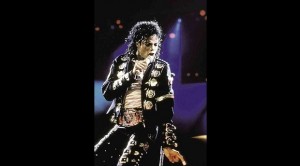Michael Jackson may have died five years ago, but that didn’t stop some very creative people from digitizing his image and moves to come up with a “performance” via hologram at the recent Billboard Music Awards.
The sight and sound of a “living” Michael Jackson in full, energetic performance had a powerful effect on his fans, but some of them found it more than just a bit “creepy”—and, too much to take.
Others, of course, were grateful for the chance to once again viscerally “experience” their idol, albeit only in holographic shape and form. The entire showstopping routine was so arresting that it’s prompted a new debate on the pros and cons of using holograms for entertainment purposes.
Truth to tell, it’s nothing new as far as sci-fi and fantasy buffs are concerned. The “Star Wars” screen saga featured the use of holograms to bring Jedi together from different parts of the universe, and a really early form had the deceased Nat “King” Cole brought back to “life” to do a duet with his daughter, Natalie.
How is the fusion of reality and digitized images effected? Many cameras record the movements to be digitized, and translate them into 3D “information,” which is then projected via blue-screen process to the performing area, where it’s very carefully integrated with the live action of dancers and other performers—so that, from the audience’s frontal point of view, everything comes together as one show-stopping “live” performance!
State of the art
The state of the art has become so advanced that the old, giveaway seams and glitches have been finessed out, so everything looks amazingly real. In time, it’s predicted that the technique can be used, not just for fantasy or fanciful entertainment purposes, but even in the business world, to conduct multilocation conferences and presentations.
More personally, the time could come when private communications will be greatly enhanced with the use of holograms to bring loved ones realistically together, even if they’re actually in different parts of the world.
On the debit side, aside from the “creepily necrological” factor, the technique could encourage unrealistic expectations, and even excessively artificialize relationships. Still, the world of entertainment will surely use it more often for all sorts of “iconic” effects, so “MJ” could be only the first show biz great to “live” again—on completely convincing holographic performance.
For our part, we would love to see a hologram version of an old musical number by the one and only screen moppet supreme, Shirley Temple. Elvis gyrating his pelvis again would be another showstopper, and a 3D dance number by Fred Astaire and Ginger Rogers would send their fans pirouetting over the moon!
And, what about great moments of history brought dramatically and movingly back to life? Or, the creation of “new” performances by stars who are no longer with us? The possibilities are exciting—and cautionary, at the same time. What do you think?



